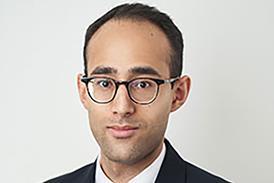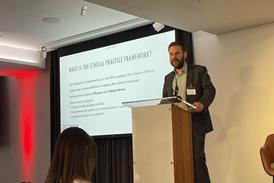Decisions filed recently with the Law Society (which may be subject to appeal)
Hashok Parmar
Application 12286-2021
Admitted 1992
Hearing 11 April 2022
Reasons 13 May 2022
The Solicitors Disciplinary Tribunal ordered that the respondent should be struck off the roll.
The respondent had conspired with others to commit fraud, by falsely representing that the sales of certain properties were genuine transactions conducted on behalf of their true owners, when in fact such sales had involved a false and/or stolen identity to represent those persons, thereby breaching principles 2 and 6 of the SRA Principles 2011. He was convicted on indictment of two counts of conspiracy to commit fraud in respect of the above conduct.
He had conspired with others to convert criminal property, namely the proceeds of fraudulent property transactions, by moving the said proceeds through diverse bank accounts and converting the same to cash, thereby breaching principles 2 and 6. He was convicted on indictment of one count of conspiracy to convert criminal property in respect of the above conduct.
The respondent’s criminal conduct resulting in each of his convictions for conspiracy to commit fraud was dishonest because dishonesty is an essential ingredient of fraud and a conspiracy to commit fraud is simply an agreement with others to commit that offence.
On 1 June 2020 he was sentenced to a total of six years’ imprisonment.
The offences had been committed when Mr Parmar and SA had worked together at the firm and became involved in a series of sophisticated frauds. While most of the frauds were unsuccessful, one of them was not, resulting in actual loss.
The sentencing remarks recorded that the offence that was the subject of Count 2 (conspiracy to commit fraud) fell within the highest bracket of the sentencing guidelines.
By conspiring with others to commit fraud and/or to convert criminal property in the manner described above, Parmar had failed to act with integrity and had undermined public trust in himself and the profession. He had therefore breached principles 2 and 6.
The respondent had caused serious harm to an individual and potential harm to others. Insofar as the attempted frauds were unsuccessful, that was due to the good judgement of others and did not detract from the fact that serious harm was foreseeable and had been intended. The damage to the reputation of the profession was therefore very high.
The element of dishonesty was an aggravating factor.
The respondent’s conduct was deliberate, planned, repeated and continued over a period of time. It involved an abuse of position and concealment of wrongdoing. Parmar had contested the matter at trial and had not made admissions.
The only appropriate and proportionate sanction was that the respondent should be struck off the roll.
The respondent was ordered to pay costs of £3,600.





























